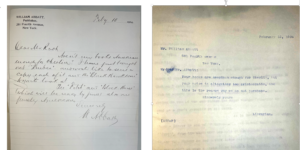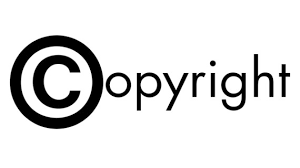Category: Collections
LENS: Global Science Tool
Some might be interested to read more from The Lens founder Richard Jefferson. It is an open access AI tool…to a point. Doing some interesting aggregating of sources.
Explore global science and technology knowledge
The Lens serves integrated scholarly and patent knowledge as a public good to inform science and technology enabled problem solving.
https://scholarlykitchen.sspnet.org/2024/07/11/kitchen-essentials-richard-jefferson-the-lens/
Their COLLECTIVE ACTION initiative is pretty neat, too.
Adam Matthew’s new digital collection – Indigenous Histories and Cultures in North America
Adam Matthew added a new collection, Indigenous Histories and Cultures in North America, to our subscribed Explorer package. It can be accessed though OBIS at https://obis.oberlin.edu/record=b9787693
1,829 individual MARC records have also been loaded into OBIS, and they will be searchable in Summon after scheduled indexing process by the end of this week.
Take a look and PROMOTE!
New Role for Zeb Wimsatt as Collections and User Experience Librarian
On April 15, Zeb Wimsatt joins the core reference team in the Terrell Main Library as the Collections and User Experience Librarian. Before joining the staff at OCL, Zeb worked as a children’s librarian in New England, where they grew up. Outside of work, Zeb plays horror sound effects on WOBC, looks for mushrooms and flowers, writes fiction, and maintains an uneasy alliance with the elderly chiweenie Pigeon-bird-of-my-heart. Also, as half of Greensand Books, Zeb prepares papercut decorations for books handbound by their partner Bess—you can sometimes find them tabling at local markets. Congratulations, Zeb!
Adam Matthew new collection – British Newstreets
6,420 short blank and white silent films from Adam Matthew Explorer collections on British Newstreets, 1911-1930: Culture and Society were just added to OBIS and Summon. (It will take a few days to see them in Summon until they are indexed.)
The collection can be found via OBIS at https://obis.oberlin.edu/record=b9767224
Enjoy!
Update on Hachette vs. Internet Archive
David Hansen and Kyle Courtney have written a rapid reaction post to the publishers’ reply brief in Hachette v. Internet Archive. Their post identifies a few critical issues that the publishers focus on in their brief, including some questionable fairuse analysis. Much of the brief is framed in heated rhetoric that may cause alarm, but much like publishers’ announcements about interlibrary loan, e-reserves, or document delivery in the past. They argue instead that controlled digital lending is here to stay, regardless of the lower court’s poor copyright analysis and current publisher’s brief. Have a read!
https://kylecourtney.com/publishers-reply-brief-in-hachette-v-internet-archive-first-impressions/
New Series: Blasts from the Past Found in CRS Clean Up

Found while cleaning up in CRS in advance of new carpet.
Transcriptions:
From William Abbatt, Publisher, New York July 10, 1904
Dear Mr. Root,
Aren’t our books American enough for Oberlin? […]
**************
My dear Mr. Abbatt:
Your books are American enough for Oberlin, but your price is altogether too aristocratic, and this is the reason why we do not purchase.
Sincerely yours,
Azariah Root
Safety Reminder
Consider incorporating this brief public service announcement when leading a new group of students in library teaching or programming activities…and remember these guidelines for your own safety, too!
Emergencies can happen anywhere and at any time, so it’s important that we take a minute to prepare for a situation in which our safety could depend on our ability to react quickly. Take a moment to learn the different ways to leave this building. If there’s ever a fire alarm or something like that, you’ll know how to get out and you’ll be able to help others get out. Next, figure out the best place to go in case of severe weather – we’ll need to go to a low-level in the middle of the building, away from windows. And finally, if there’s ever someone trying to hurt us, our best option is to run out of the building. If we cannot do that safely, we’ll want to hide somewhere we can’t be seen, and we’ll have to lock or barricade the door if possible and be as quiet as we can. We will not leave that safe area until we get an Oberlin Security message confirming that it’s safe to do so. If we can’t run or hide, we’ll fight back with whatever we can get our hands on.
Oberlin’s Emergency Alert System goes out to students and employees. To verify or update your contact information, go to Update Your Info and follow the instructions. If you have not registered or signed up to access your information in the system, you will need to create a new access account by pressing, Sign Me Up! and following the prompts.
Campus Safety phone: 440 775 8444. Use 911 for emergencies.
Visit Oberlin.edu/campus-safety for more information.
Why Does the U.S. Copyright Office Require Libraries to Lie to Users about Their Fair Use Rights?
For all those who lie awake worrying about copyright.
Interesting argument–but also read all the comments, especially those from Melissa Levine, who is a major player in this area.
Charleston Conference Observations of Note
I found these observations from the Charleston very insightful. Lisa Hinchliffe is an old colleague from UIUC and part of the Scholarly Kitchen group. Link to full post at bottom.
AI Everywhere – Or, Is It?
Unsurprisingly, AI was the predominant theme. If something wasn’t “our new AI product,” it was AI-powered, AI-enhanced, AI-enabled, AI-driven, AI-supported, etc., etc., etc.! We are high on the hype cycle curve right now, particularly with respect to taglines, marketing, and positioning. What’s unclear though, is what all this AI actually is. Attempts to engage sales staff about what the AI does, how it operates, and why the particular approach was chosen over others got me answers like “it’s an algorithm” and “I’m not really sure but I can have someone follow up with you later.” Now, I appreciate the honesty. But, I also think this was a failure to take advantage of the opportunity to demonstrate that there is real added value from AI and educate customers about how the different approaches to AI will impact research and library collections and services.
Fully OA Publishers Turn to Pure Publish Agreements
Though Pure Publish Agreements have been available for a while now, the fully open access (OA) publishers are increasingly pitching institutional agreements to libraries. Framed as mechanisms for decreasing institutional costs (e.g., discounting list APC prices), increasing equity (e.g., all of an institution’s authors are covered not just those who can pay APCs), aligning spending with values (e.g., investing in full open access), and ensuring compliance (e.g., with OSTP and Plan S), the offerings are attempting to capture library spend and even the playing field with subscription publishers who have been able to use transformative agreements to maintain their market share in the transition from paywalled to open access publishing.
Subscribe to Open Transcendency
Subscribe to Open is on the rise. Learned societies and university presses in particular are leaning in to Subscribe to Open with the recently announced support for the model by Project MUSE, which already has 50 titles committed. There seems to be a sense that this is a no-fail model, which at some level it is, in the sense of preserving the paywall-publishing pathway. But, more than one person was surprised when I observed that this was also the year we saw S2O offerings fail to meet the sustainability thresholds. I think we are going to learn a lot about the application and sustainability of the S2O model in the coming two years, particularly as libraries face continued financial pressures of paying for open access publishing through transformative and pure publish agreements in times of declining budgets.
What Role for the Library with Research Integrity?
After attending the SSP conference earlier this year, where the topic of research integrity dominated the program, I was a bit surprised to see very little in the vendor showcase on research integrity. Are libraries not seen as campus players in ensuring research integrity infrastructure or are there just not many offerings in the market yet?
The danger of this sort of essay is that my experience of the Vendor Showcase is, of course, shaped by my own interests and may be idiosyncratic. I’d love to hear what others took away and the trends they are watching. I invite you to share your thoughts in the comments.


